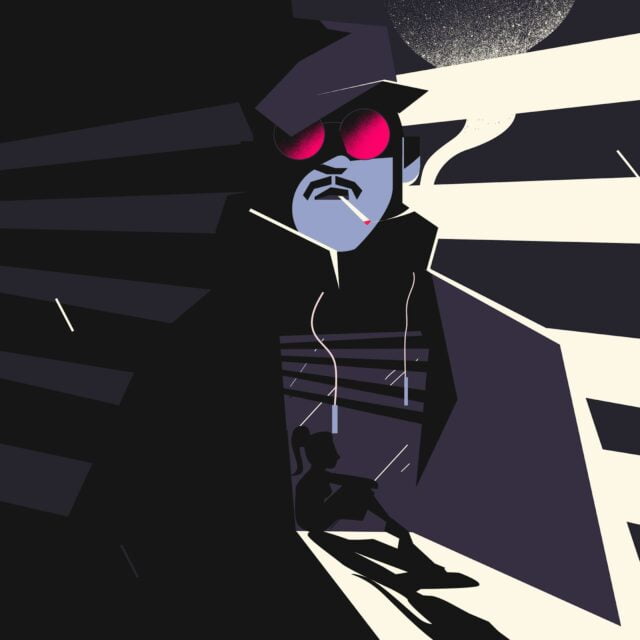London animation studio Hocus Pocus Studio made a striking series of films that explore the dark and dangerous world of criminal gangs operating in the United Kingdom. The films take an unflinching look at how young people can be lured into gang life with promises of great riches and quickly become exploited.
The stories we hear are all real, taken from transcripts of interviews from over 50 young people, social workers, teachers and police officers. A great deal of care was taken throughout to anonymize the individuals where possible, as many still remain in considerable danger from active criminal gangs.
Most of the youngsters involved are male (with one notable exception) and aged between 12-18 and share many similarities. Most of the criminal operations are centered around ‘county lines’ – a term describing how illegal drugs are transported from one area to another – often across police and local jurisdictions – usually by children or vulnerable people who are coerced into it by gangs. The ‘County Line’ is the mobile phone line used to take the orders of drugs.
The films take a non-judgmental and stark look at the rapidly escalating situation. The often bleak and frustrating world we discover is reflected in the striking art direction and sound design, designed to engage rather than glorify those involved.
The first animation is centred around a young person who has had a family member die and quickly sees things unravel. He gets into trouble at school, a violent confrontation and then everything is amplified on social media. The art direction of the fight scene in the school is one of the most striking pieces of the series.
It may be a predominantly male underworld, but episode 2 tells us the story of a tough young woman deeply involved in dealing drugs for the county lines. We hear about how she is ‘Making serious money’, which of course is the main motivator from young people who tend to come from poorer backgrounds. This animation is very atmospheric, with the hissing of the rain and the menacing leader of the gang looming large.
For young people who struggle at school, criminal gangs offer a clear career progression: ‘Selling drugs was easier than sitting my GCSEs’ is the reality we hear in the third animation, the tale of a young man who turns from being exploited to exploiter. This is a classic pattern where a young person will move up through the ranks in a criminal gang and end up doing to others what was once done to them.
The final film of the series is encouragingly called ‘Hope’ and indeed does offer a degree of optimism for those hoping to escape the vicious cycle of life in criminal gangs. He’s frustrated by the constant shuffling from one professional service to another (social workers, teachers, police etc.) but recognizes that whilst great work is being done to try and help, it’s not always noticed: ‘You saved me, and you don’t even realise.’
www.hocuspocus.studio
(Syndicated press content is neither written, edited or endorsed by ED Times)
Read more:
India’s New COVID-19 Test Is Cheap, Takes 45 Mins Only, And Is Named After Indian Detective



































